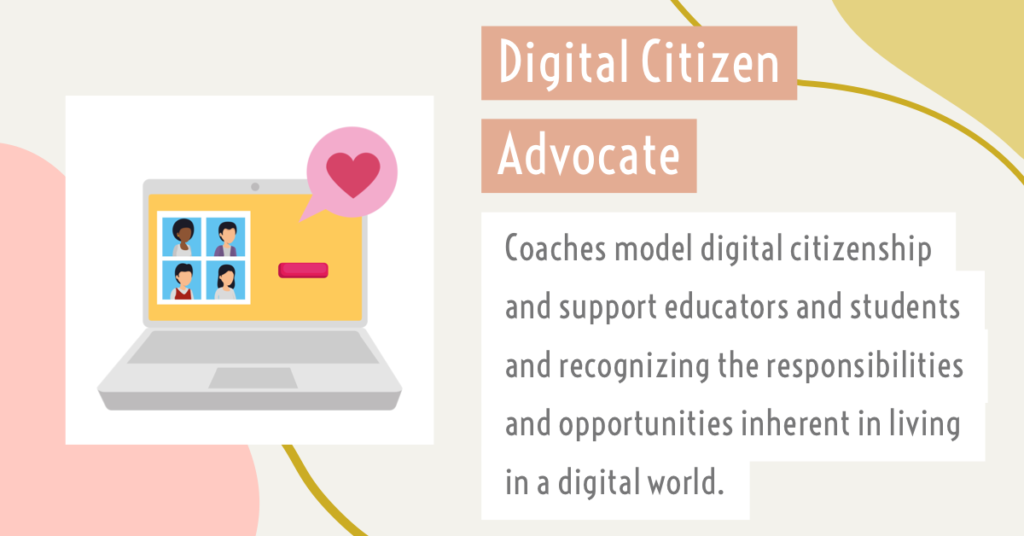7d

I know from personal experience that students need guidance on how to be good digital citizens (adults too). A digital citizen is someone who uses technology to engage with others in social, political and learning environments online. As a digital learning coach, I can continue to help both students and teachers make informed decisions on how to keep their personal information safe and how to create an appropriate online profile. One way I have done this is by creating grade-level technology challenges for teachers to follow when deploying devices in the fall. The purpose is to help students develop digital literacy skills and create a shared vocabulary across the grade levels K-8. The challenges increase in complexity at each grade level and help ensure our students are being equipped with vital 21st-century skills. There is a wide range of topics included. Some examples are device care, protecting personal information, digital citizenship, and using tools such as Clever and email.
5th-grade-Laptop-Challenge-CopyAnother example of guiding students in protecting personal information is when I used Kidblog or FlipGrid with students to collaborate with other classrooms around the world. As a coach, I made sure that the collaborating teacher and I planned specific lessons into our unit that addressed creating online profiles. We would talk about how it is important to keep our password private and not to share specific information like our full names, addresses, etc. We also practiced how to leave critical but encouraging feedback to our peers. As a class, we focused on interacting with each other kindly and ensured that the version we presented online is a true reflection of who we are.
To read more about my work with this standard, you can use the drop-down menu above or the buttons below to navigate to a specific performance indicator.
Works Cited
ISTE Standards for Coaches (n.d.). Retrieved from: https://www.iste.org/standards/for-coaches
